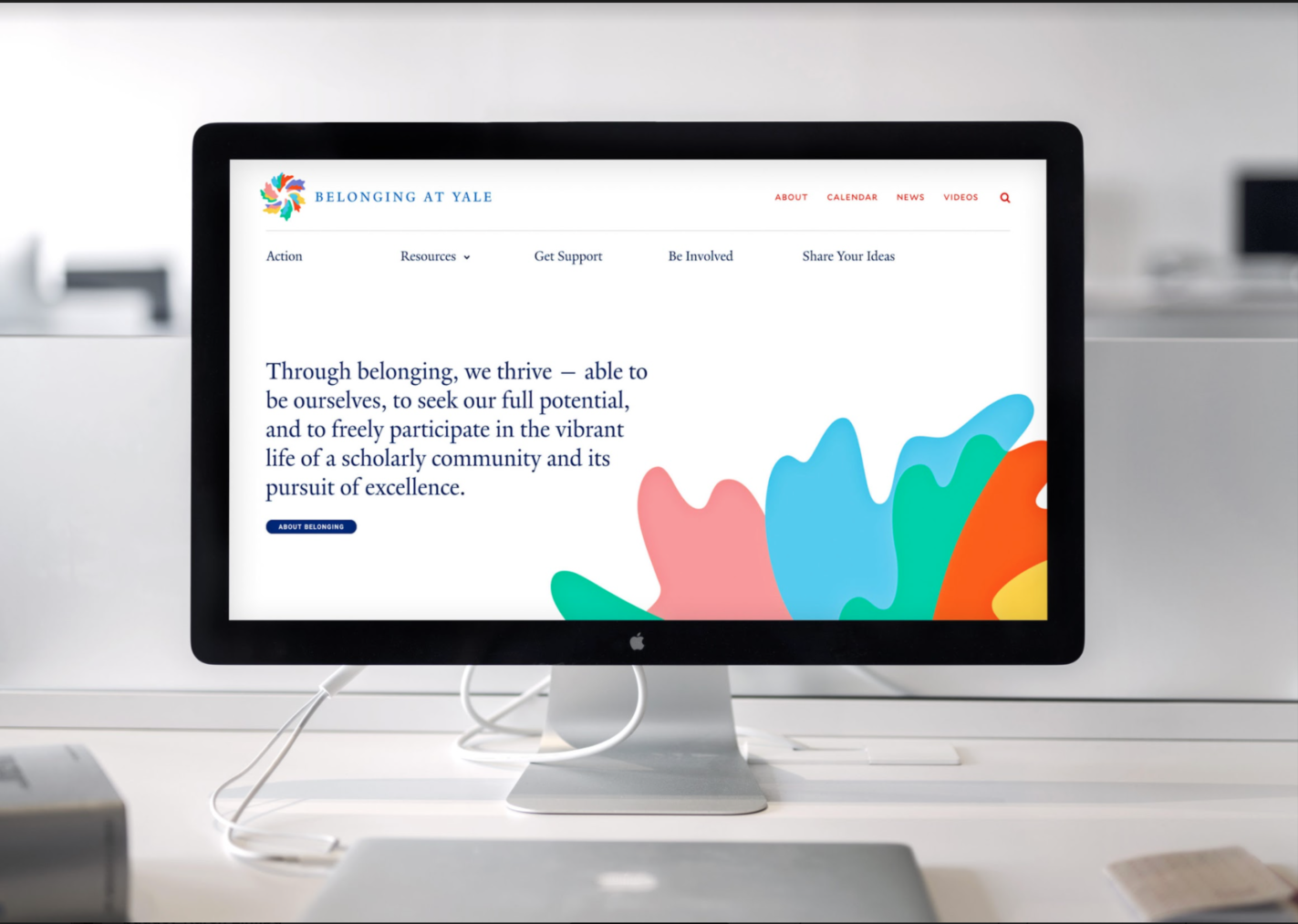University launches comprehensive “Belonging at Yale” initiatives — a year later, where are they now?

Courtesy of Amay Tewari
Over the past academic year, University President Peter Salovey and the rest of The President’s Committee on Diversity, Inclusion and Belonging have worked with students, faculty and staff to take the first steps in carrying out the Belonging at Yale Initiative. The program, which was first introduced in the Fall of 2019, was created to bolster diversity, inclusion, equity and belonging at Yale.
Salovey first announced the initiatives in an Oct. 14 email to the student body. Salovey explained that Yale would address several aspects of inclusion within the institution, including hiring more diverse faculty and integrating antiracism into Yale’s programs. The January before, Salovey had appointed a President’s Committee on Diversity, Inclusion and Belonging to create a vision of inclusion and belonging for Yale and outline specific goals for the coming five years. In its plan, the Committee members outlined their desire to address nine key elements of growth that, in their eyes, would allow Yale to embrace a culture of inclusivity while simultaneously creating a welcoming academic environment for all students, especially those of historically underrepresented backgrounds in higher education. In order to accomplish this goal, the Committee determined six primary areas of focus to address over the next five years: scholarship and teaching, diversity of the community, equitable process and responses, professional and personal development of inclusive practice, acknowledgment and respect and communication and accountability.
“I want each of us to feel confident that we belong at Yale,” Salovey said in a Feb. 5, 2020 press release. “I thank the committee members and look forward to receiving their recommendations about how to foster an environment where belonging is second nature to us.”
Throughout the year, the Committee hosted several speakers as part of the initiatives. On Dec. 2, 2020, Yale hosted Ibram X. Kendi, author of How to Be an Antiracist. Throughout the talk, which was co-hosted by the Yale Alumni Association, Kendi spoke to faculty members about the importance of antiracist work, as opposed to the passivity of simply not being racist.
Kimberly Goff-Crews ’83 LAW ’86, Vice President of University Life and head of the Belonging initiatives, said “the antiracism speakers series [would] present opportunities for faculty, students, staff, and alumni to engage with leading thinkers and with one another and to enhance their understanding of racism and how to address it.”
Along with the speaker series, the Committee released an April update on progress it had made in implementing the initiatives throughout the year.
Additionally, as the year went on, a smaller Committee continued to make decisions regarding the Belonging initiatives. In a January meeting of the President’s Cabinet — deans, vice presidents and other senior administrative leaders — administrators were informed on the progress of the program.
At the next Cabinet meeting, in February, Salovey and Goff-Crews asked each administrator to develop a five-year plan to address inclusion and diversity within their respective schools. As part of the plan, unit leaders were instructed to investigate current practices as well as provide clear outlines, recommendations and means of establishing accountability for carrying out their plans. Individual unit plans are due next September. Throughout the summer, Committee members will continue to work on implementing the next stages of the Belonging initiatives.
Since the announcement of the initiatives, Goff-Crews has stated that creating a culture of belonging “is a marathon, not a sprint.”
While the year marked many successes in the eyes of Committee members, their work did not go without criticism. Student leaders and activists have said the Committee’s recommendations do not truly address the scope of the problem around a lack of inclusivity at Yale.
Former student-body president Kahlil Greene ’22 spoke out against Yale’s past policies at a July meeting with Salovey, encouraging the University to make it easier for a broad array of students to apply, including providing more information and tips on essay writing and studying for standardized tests, while Black Students for Disarmament at Yale continued to call on the administration to abolish the Yale Police Department.
Matthew Jacobson, Sterling Professor of African American studies, American studies and history, applauded the initiatives for their comprehensiveness. They are the University’s most far-reaching efforts on the front, addressing inclusion among students, faculty staff and alumni, he said.
But Jacobson said that by focusing on belonging instead of equity, the initiatives do not fully address the power imbalance at Yale and in broader society.
“There are people in the administration who truly believe that their good intentions, and the good intentions of the University at large, will be enough to solve these problems,” Jacobson said. “The historian in me just thinks that’s a shallow way to think about this because the problems are deep, and they are about power, and they are about vested interest and not everyone on campus is a good actor.”
Five year plans on belonging are due in September.







